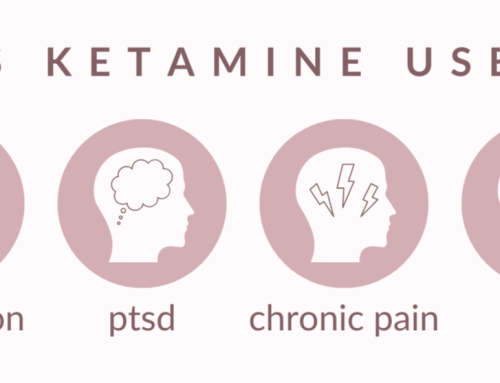Introduction
Ketamine, recognized for its anesthetic and therapeutic properties, has gained popularity in both medical and recreational settings. While its benefits are notable, it’s essential to be aware of the potential risks, particularly concerning Ketamine overdose. This article provides insights into responsible Ketamine use while highlighting its positive aspects.
What is Ketamine?
Ketamine is a dissociative anesthetic widely used in medical and veterinary practices. Beyond its medical applications, it has also become known for its hallucinogenic effects, leading to recreational use.
Understanding Ketamine Overdose
While Ketamine is generally safe when used correctly, there are rare instances of overdose. Understanding the signs and symptoms is crucial for timely intervention.
Signs and Symptoms of Ketamine Overdose
Recognizing the physical and psychological indicators of Ketamine overdose can be lifesaving. Symptoms may include confusion, hallucinations, rapid heart rate, high blood pressure, and, in severe cases, unconsciousness.
Treatment and Recovery
In the event of a Ketamine overdose, immediate medical attention is vital. Treatment typically involves supportive care in a medical setting, including monitoring vital signs and, if necessary, administering medications to manage symptoms. Recovery can vary depending on the severity of the overdose but generally involves close observation and supportive therapy.
The Importance of Safe Ketamine Use
Responsible consumption of Ketamine is paramount to avoid potential risks. Consulting healthcare professionals for personalized advice and adhering to prescribed dosages can significantly reduce the likelihood of adverse effects.
Consulting Healthcare Professionals
Always seek guidance from qualified healthcare providers before using Ketamine, particularly for therapeutic purposes. They can offer personalized advice, dosage recommendations, and monitor your response to the treatment.
Benefits of Ketamine
Despite the potential risks, Ketamine has proven benefits, particularly in mental health treatment and pain management.
Mental Health Applications
Ketamine is increasingly used in treating mental health conditions such as depression, PTSD, and anxiety. Its rapid-acting nature makes it a promising option for patients who do not respond well to traditional treatments.
Pain Management
In medical settings, Ketamine is used to manage chronic pain, particularly in cases where other painkillers have been ineffective. Its unique mechanism of action allows for significant pain relief without the addictive potential of opioids.
Ensuring Safe Consumption
To maximize the benefits of Ketamine while minimizing risks, it’s essential to follow safe usage guidelines.
Dosage Guidelines
Accurate dosing is critical for Ketamine’s safety and efficacy. Always follow prescribed dosages and avoid self-medicating.
Purchasing from Trusted Sources
Obtaining Ketamine from reputable sources is crucial to ensure product quality and safety. Our platform provides high-quality Ketamine, adhering to strict safety and ethical standards.
Conclusion
Informed decision-making and responsible use are key to harnessing Ketamine’s benefits while minimizing risks. Whether used for therapeutic purposes or otherwise, always prioritize safety and professional guidance.
Frequently Asked Questions
- Is Ketamine safe for medical use?
Ketamine is considered safe when administered in a controlled medical setting under professional supervision. - What are the signs of Ketamine overdose?
Ketamine overdose symptoms include confusion, hallucinations, and unconsciousness. Immediate medical attention is necessary if these occur. - How can I ensure the quality of Ketamine purchased?
Always purchase Ketamine from trusted (Chemical Pharmacy) sources that guarantee product quality and safety. - Are there long-term effects of Ketamine use?
Long-term use of Ketamine can lead to bladder and cognitive issues. It’s important to use it responsibly and under medical supervision. - Can Ketamine be used for self-treatment of mental health issues?
Ketamine should not be used for self-treatment. Always consult a healthcare professional to explore its potential as part of a comprehensive treatment plan.



Leave A Comment